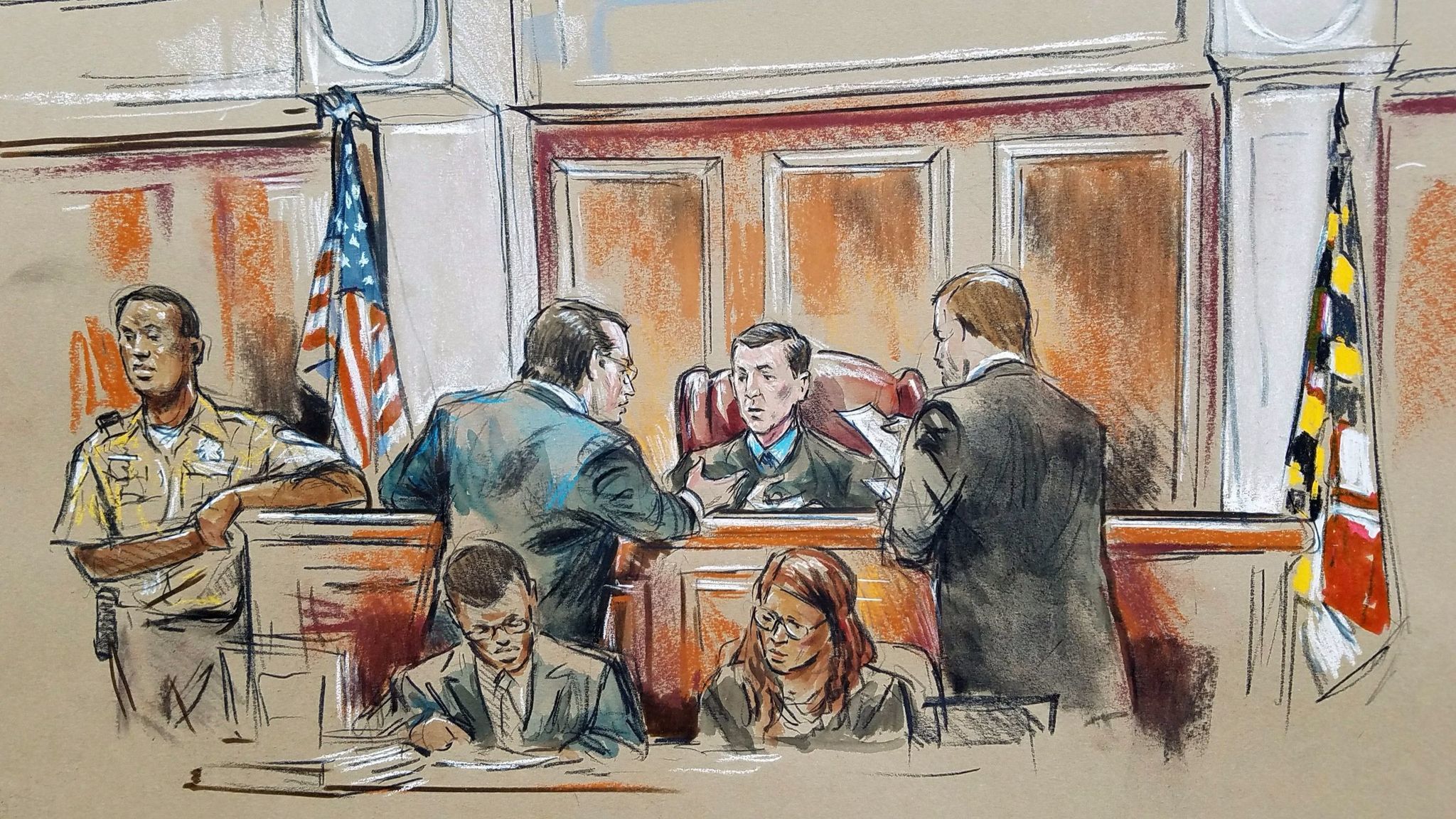Search for topics or resources
Enter your search below and hit enter or click the search icon.
January 31st, 2018 | 2 min read

Justin Fenton has a great story from a few months ago exploring how plea deals happen in Baltimore City:
Ninety-three percent of felony convictions in Baltimore are the result of plea deals — and some three-quarters of them are taken in front of Peters. Peters, a 61-year-old former state and federal prosecutor, presides over the city’s “reception court.” The venue was created a decade ago to centralize and expedite cases, freeing up other judges and courtrooms for trials. It’s the first and last stop for the bulk of the city’s cases.
In reception court, prosecutors and defense attorneys can present plea deals for Peters’ approval. When they aren’t in agreement, they can approach the bench, where Peters may propose a compromise. He can also balk, and increase what the state is looking for.
It’s a fascinating look at how Baltimore’s court system ends up sentencing people who have been charged with a crime. On the one hand, going to trial seems like it would produce much more dramatic sentences and the system of plea deals allows defendants who are likely guilty get probation before judgment or a suspended sentence. On the other hand, defendants may also be intimidated by the possibility of a trial and may be willing to go along with a plea deal — even if they are innocent! — because they don’t want to risk a longer sentence. This NPR episode details such a case, where a defendant knew he was innocent (and was eventually proved so) but initially was willing to take a plea deal simply because he didn’t think he could win in court.
Few cases go to trial in Baltimore. When the parties can’t work out a deal and opt to go to trial, they’re often just playing a game of chicken: Forty percent of defendants forwarded to trial judges last year ended up pleading out. Fifteen percent of cases set for trial ultimately were dropped by prosecutors. Only 17 percent of defendants who elected to go to trial were tried and convicted, according to statistics provided by the judiciary.
This article is also a great example of the sort of journalism we need a lot more of: local, detailed, focused on important issues, and exploring a subject that is otherwise unfamiliar. It takes more concentration to read, doesn’t have a flashy hook, and doesn’t play on your worst instincts as a person, so it probably won’t light up across social media. Yet it is this sort of thing that absolutely needs to be read, shared, and financially supported. Even though the people collecting the money on behalf of the journalists are awful, the journalists themselves still deserve our support.
Matthew Loftus teaches and practices Family Medicine in Baltimore and East Africa. His work has been featured in Christianity Today, Comment, & First Things and he is a regular contributor for Christ and Pop Culture. You can learn more about his work and writing at www.MatthewAndMaggie.org
Topics: